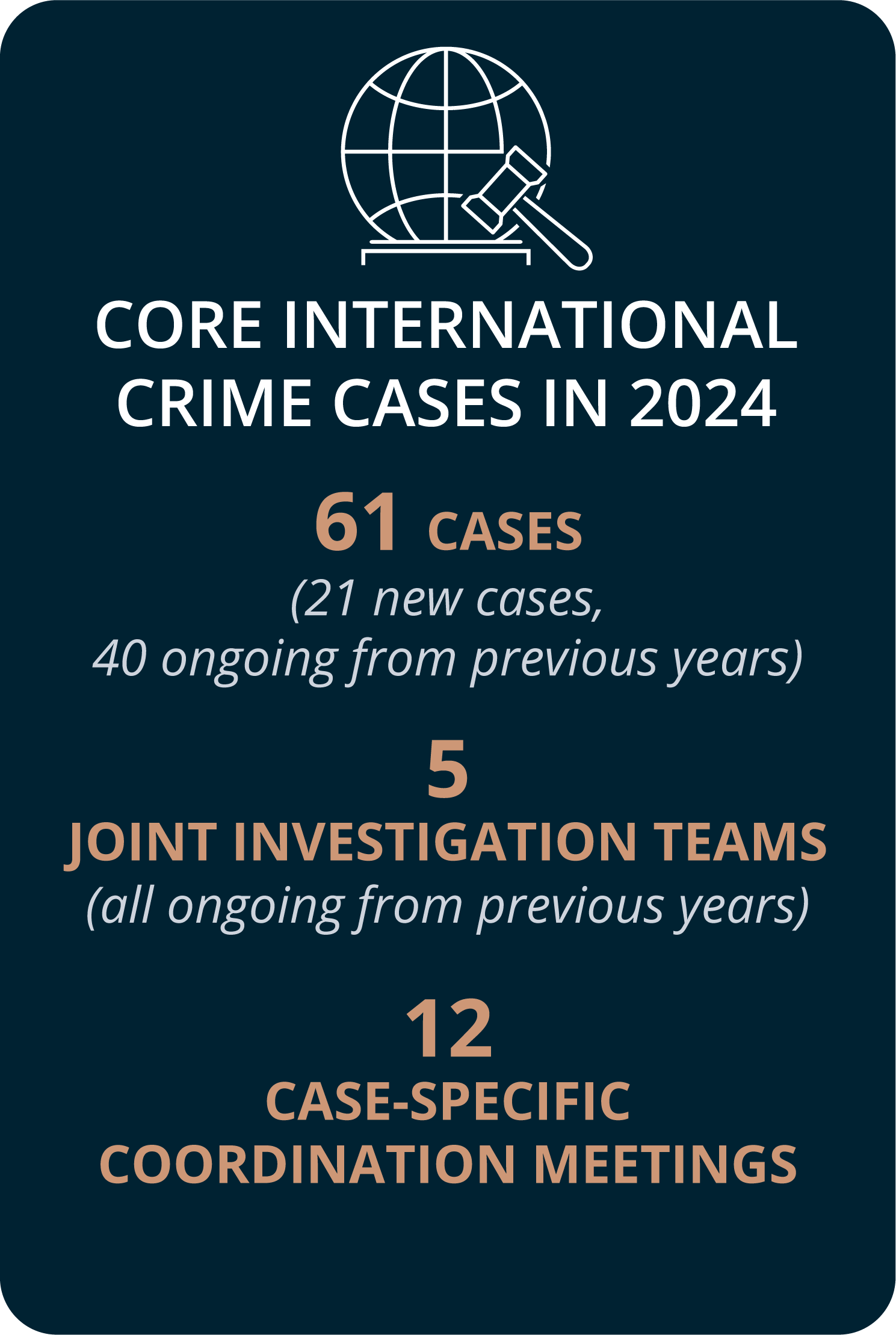The crime of genocide, crimes against humanity and war crimes (known collectively as core international crimes – CICs) are a threat to the peace, security and well-being of our world. Following the recent escalation of nearby conflicts in the European Union’s wider neighbourhood, many countries have opened investigations into CICs.
In the current geopolitical climate, there is a need to secure the continued support and resources of national judicial authorities to advance accountability efforts for CICs committed in Ukraine and elsewhere, as supported by Eurojust and the Genocide Network.
Eurojust’s operational support to CIC cases

In 2024, Eurojust handled one third more CIC cases than in 2023. The Agency saw a 40% increase in the number of new cases it was asked to handle and a 30% increase in the number of ongoing cases.
Croatia was the EU country that initiated the most CIC cases at Eurojust in 2024, while Ukraine was the third country that owned the highest number of CIC cases. Croatia, Germany and Lithuania were the most frequently requested countries to participate in transnational CIC cases at the Agency in 2024, while Serbia, followed by the United States, was the third country most frequently requested to participate in such cases.
Eurojust assisted the national authorities of EU Member States and partner third countries mainly in cases concerning war crimes. Other cases supported by the Agency concerned crimes against humanity and genocide. Some ongoing cases addressed in 2024 concerned CICs in combination with crimes against life, limb or personal freedom, as well as organised crime.
In most CIC cases, Eurojust assisted the national authorities by facilitating the exchange of documents, as well as EIOs and MLA requests concerning, for example, extradition requests or to obtain information and evidence, hear witnesses or carry out other investigative measures. Some complex CIC cases required multifaceted support from Eurojust, including multiple coordination meetings as well as legal and analytical support.

